Scene-stealing runway sets from the A/W 2019 womenswear shows
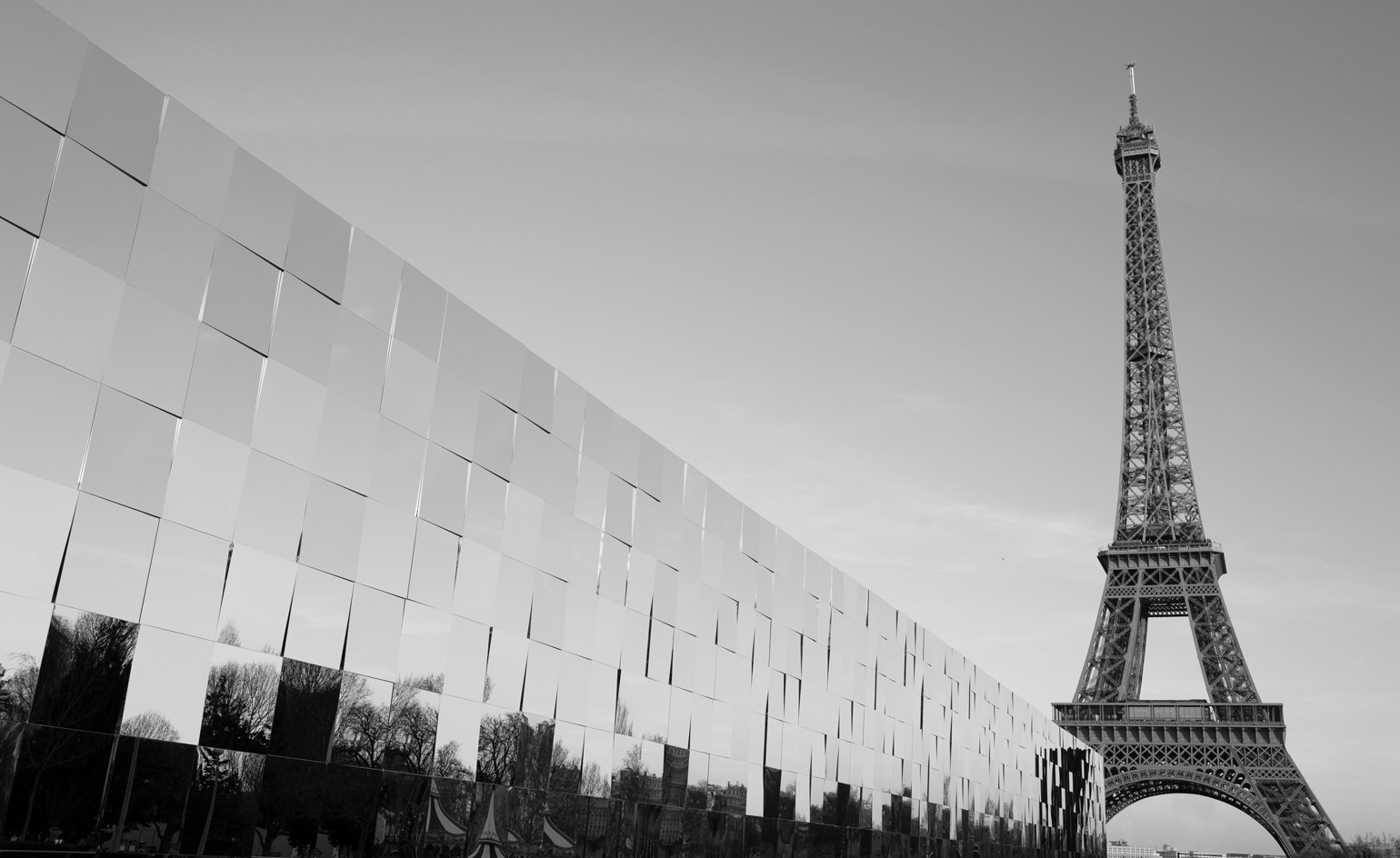
Saint Laurent: Each season the house pitches up at the Place du Trocadero, the most picturesque spot in Paris, slapbang opposite the Eiffel Tower. For A/W 2019, Anthony Vaccarello erected a huge silver box lined with asymmetrical panels of mirror. Inside, endless rows of vertical lights lined a long catwalk, and twinkled and flashed as the show began. At the show’s finale, these lights emitted UV light, and illuminated the flourescent ostrich feather trim and spindly stilettos sported by models.
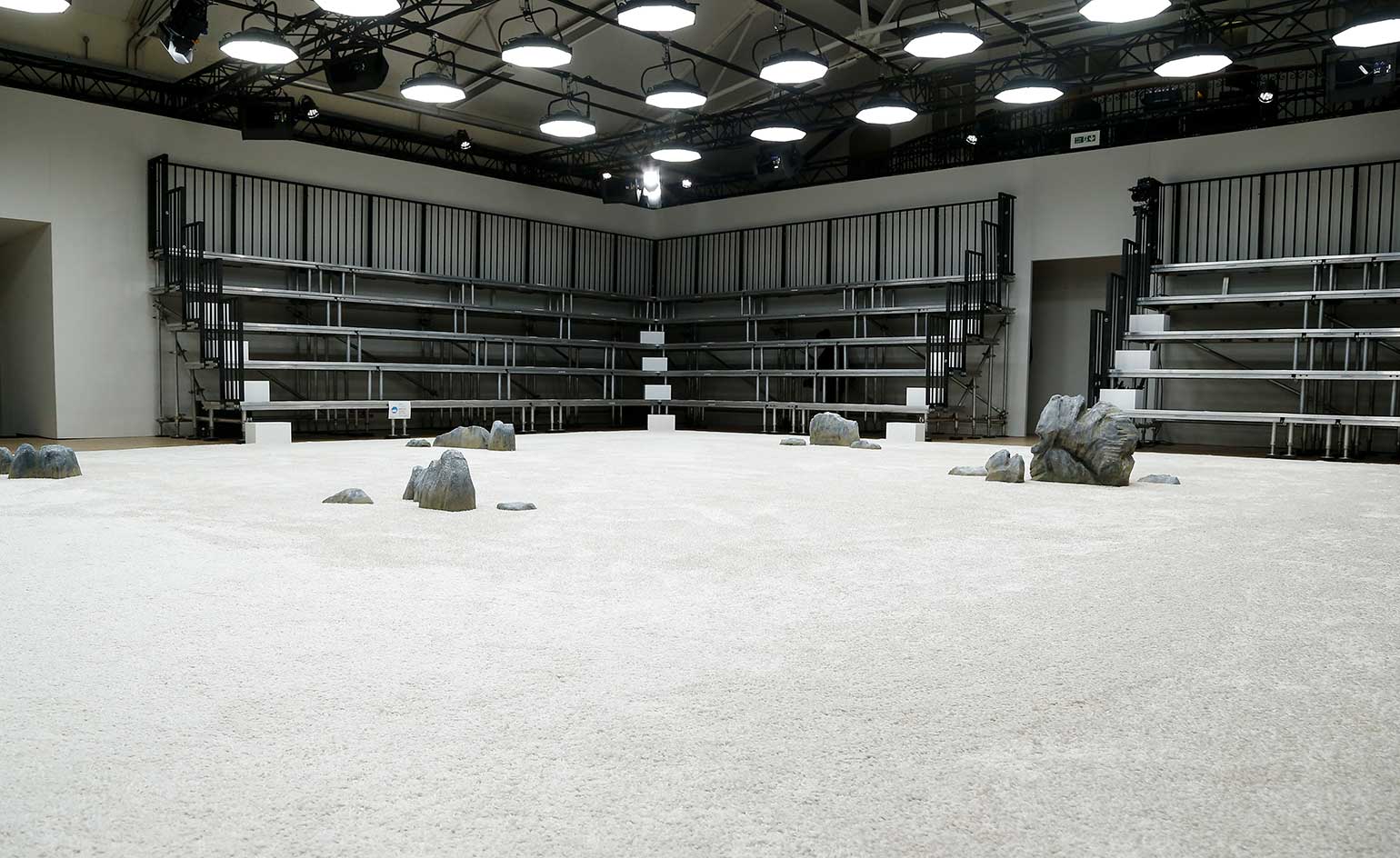
JW Anderson: ‘I wanted to do something that was about finding this fantasy and imagination in fashion,’ explained Jonathan Anderson of the inspiration behind his eponymous brand’s A/W 2019 show. His accompanying show set in London's Bloomsbury, produced in collaboration with Holmes Production, resembled both a zen Japanese rock garden, but also appeared as a blanket of clouds, with the leaves of tree tops poking through the atmosphere.
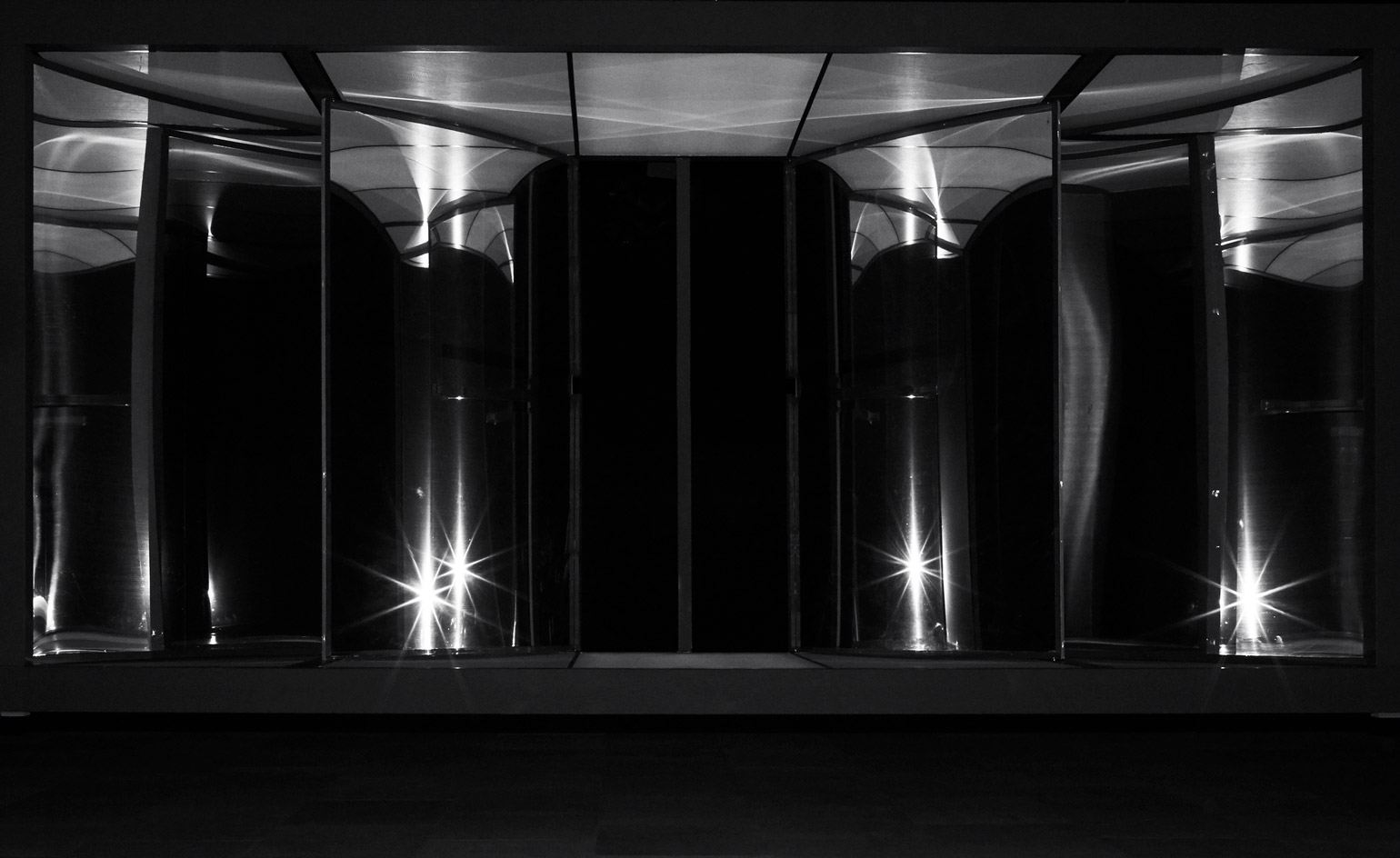
Celine: At the brand’s menswear show in January, Hedi Slimane demonstrated an enthusiasm for robotics, with a graphic, glowing orb which glided down the runway. For Celine’s A/W 2019 women’s show, a vast glass box hovered above the catwalk at Les Invalides, suspended in the air by a huge robotic arm. Inside, a model posed in an outfit oozing Parisienne insouciance, as if in trying on culottes, foulard scarves and aviators inside a mirrored changing room. As the show began, the box hovered down to the catwalk, and the first model took to the runway.
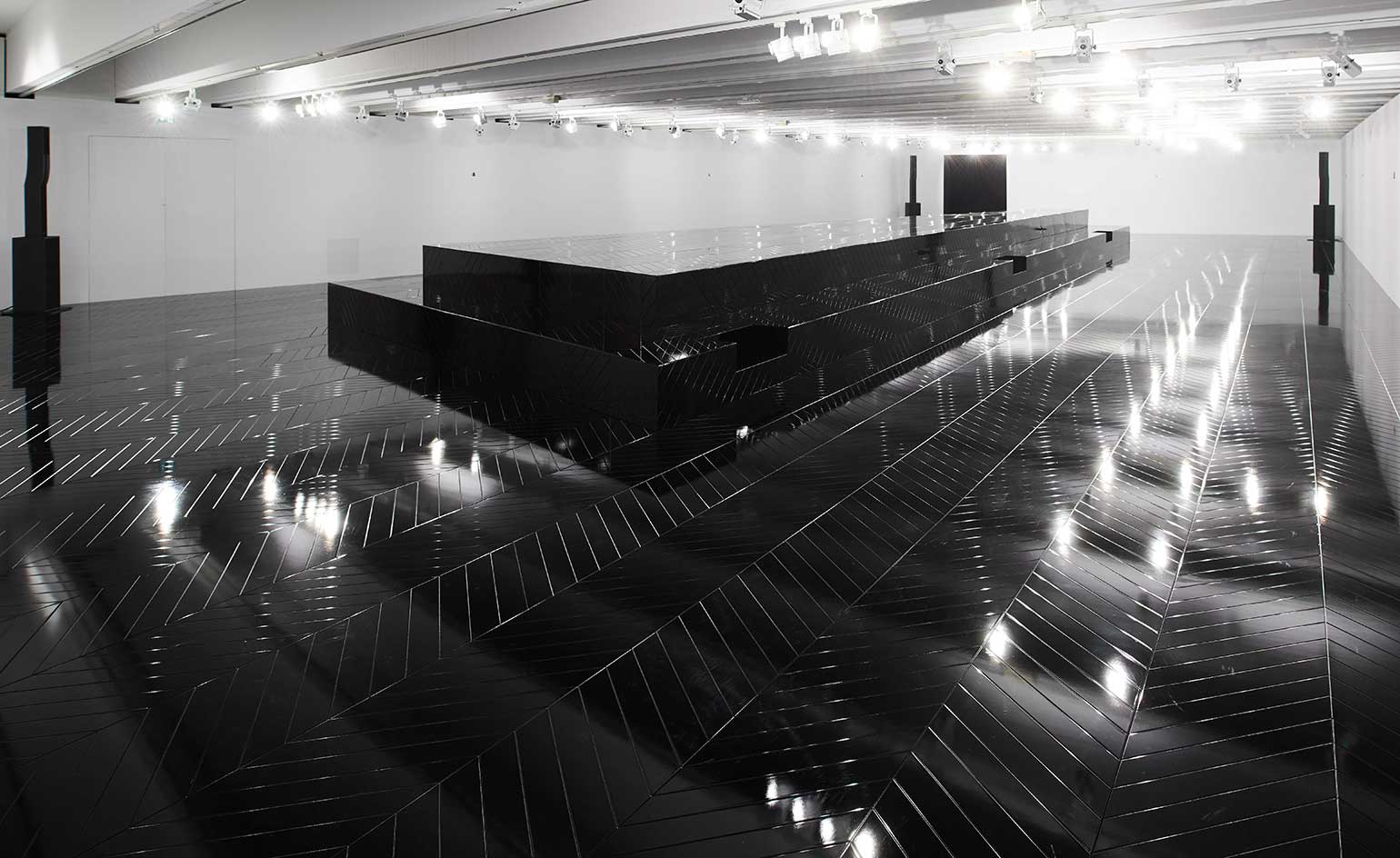
Loewe: Reflective herringbone parquet flooring lined the runway of the Spanish brand’s catwalk space at the Maison de l’UNESCO in Paris. Creative director Jonathan Anderson took a more stripped back approach to set design for A/W 2019. On closer inspection the white walls of the space where lined with with miniature oval-shaped portraits. These dated from the 16th or 17th century and featured paintings of English, Flemish, French, Italian and Spanish provenance. They nodded to the microscopic detail that was applied to pieces in the accompanying collection.
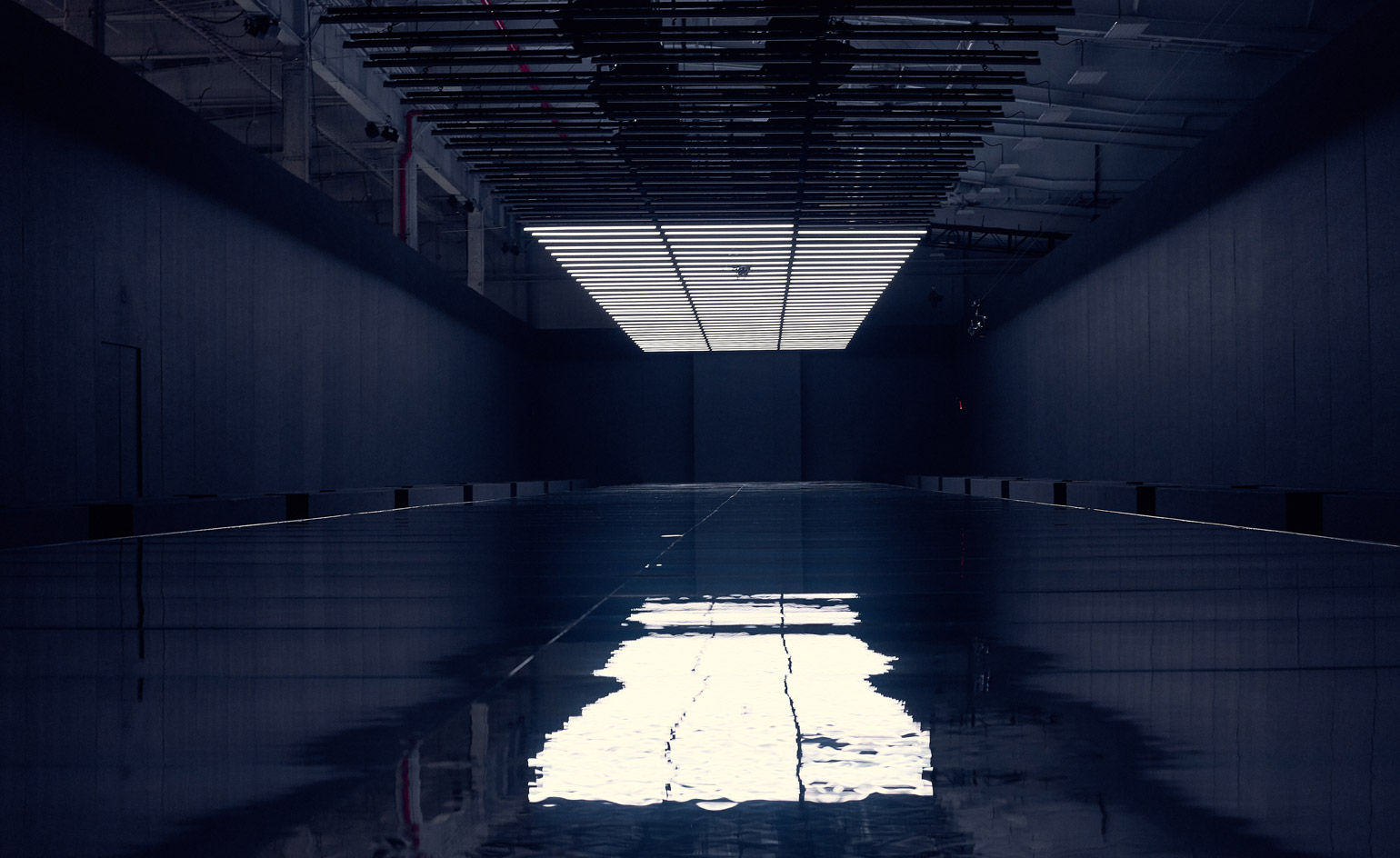
Boss: There was an aquatic edge behind chief creative officer Ingo Wilts’ set design concept for the German brand’s A/W 2019 men’s and women’s show. Wilts worked with Chameleon Visual on a showspace at Basketball City in Manhattan, which featured a long runway at its centre lapped by water. Models strode the runway as if swishing through a watery pavement, illuminated by tessellated lengths of strip lighting overhead.
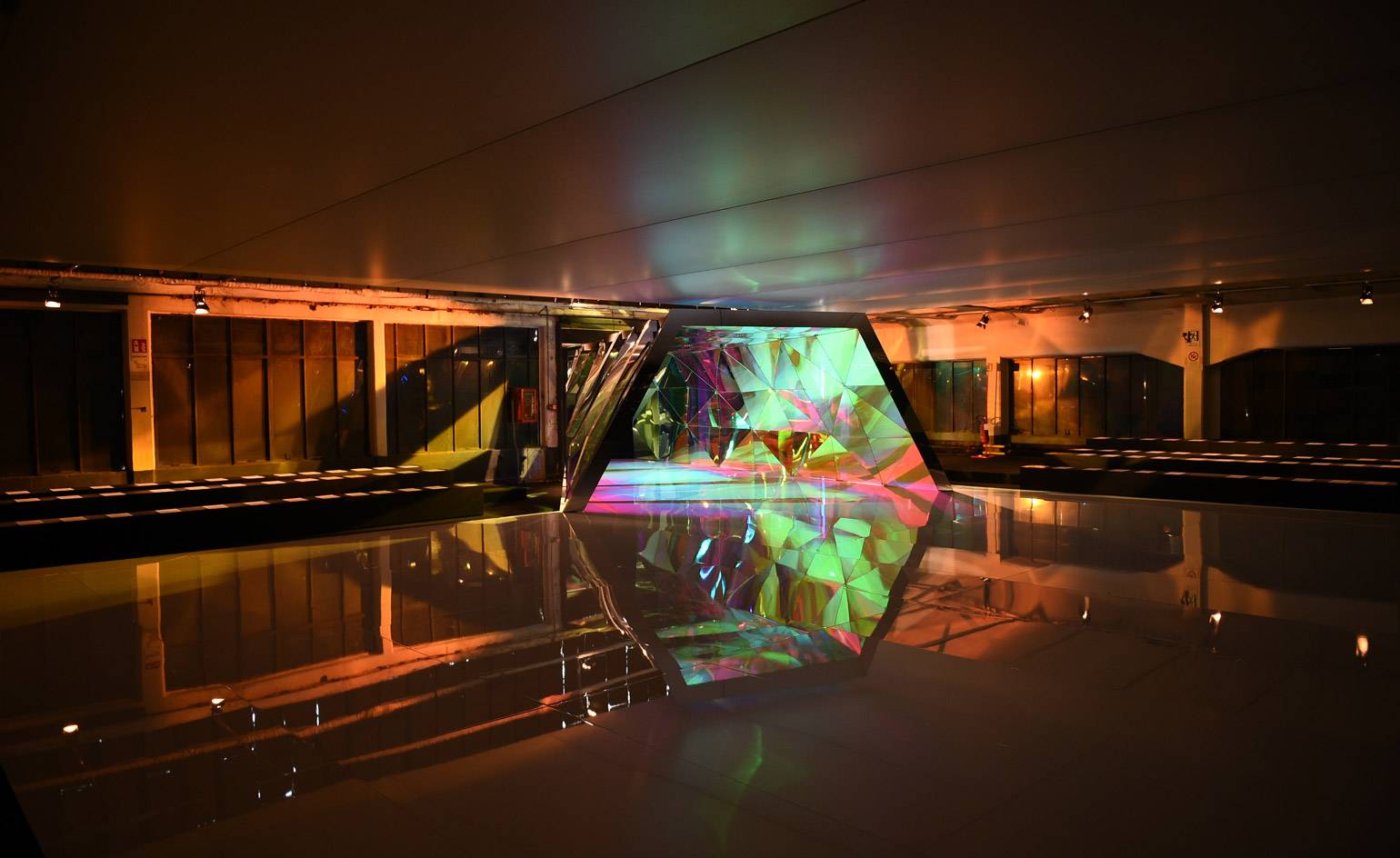
Byblos: Creative director Manuel Facchini had environmentalism on his mind for autumn, using sequins punched from recycled plastic bottles as embellishment on his designs. His A/W 2019 show set celebrated the dreamlike beauty of the Aurora Borealis and the dazzling purity of Arctic Ice. His Milan Fashion Week runway set featured a canopy evoking a graphic version of the Northern Lights, reflecting pink and green hues onto the glossy catwalk.
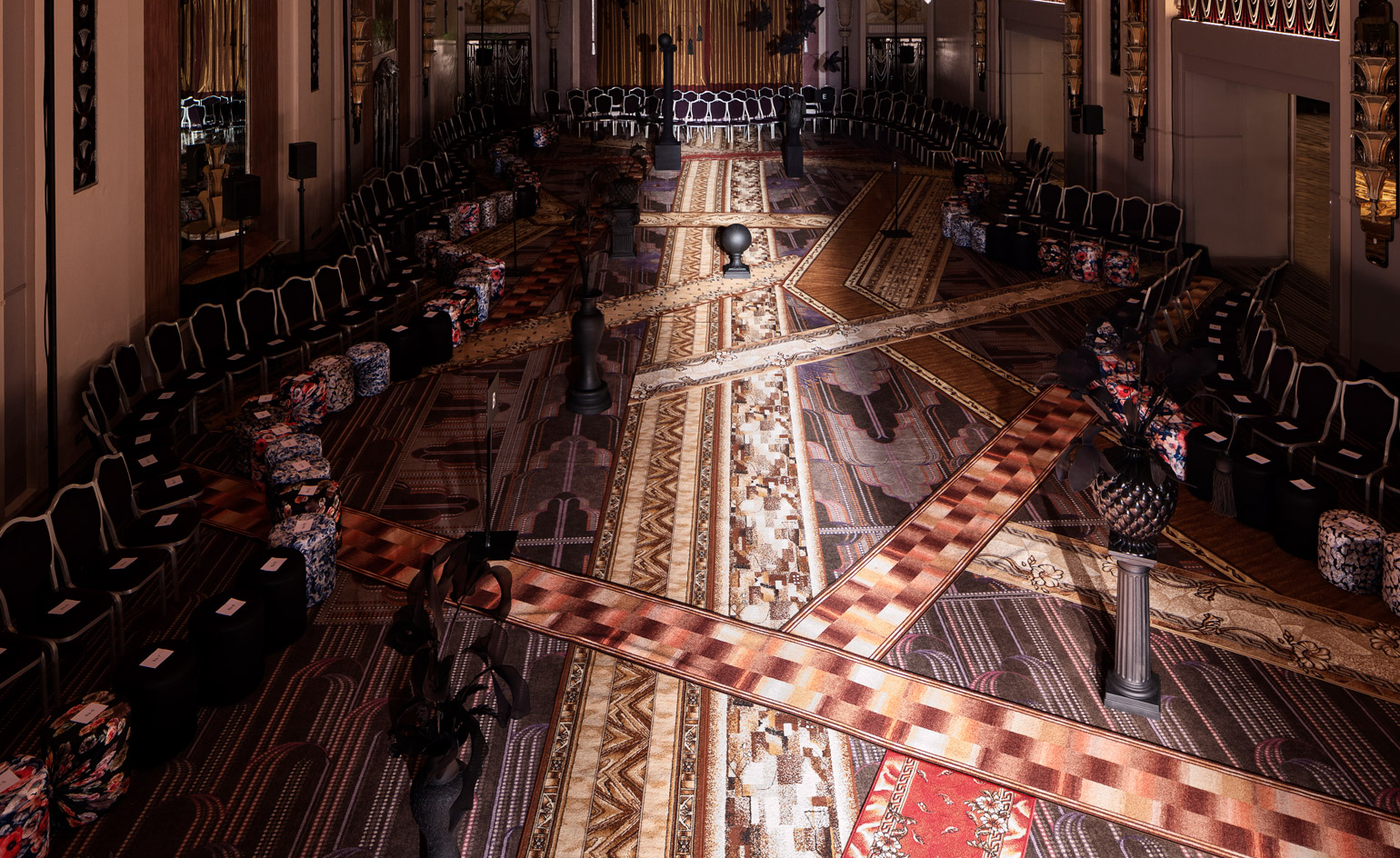
Halpern: The London-based designer is renowned for his disco dazzle, but for A/W 2019 his aesthetic inclination was more Art Deco. His draped silhouettes and graphically tessellated sequinned details nodded to to the work of French-Russian artist Erté. Art Deco drama was dialled up in the show’s location at the chandelier and balcony-lined ballroom of the Sheraton Grand Hotel on Park Lane (built in the 1920s). Halpern collaborated with Shona Heath on an opulent runway set, which featured velvet covered stools, and tropical leaves shooting from ornamental wooden vases.
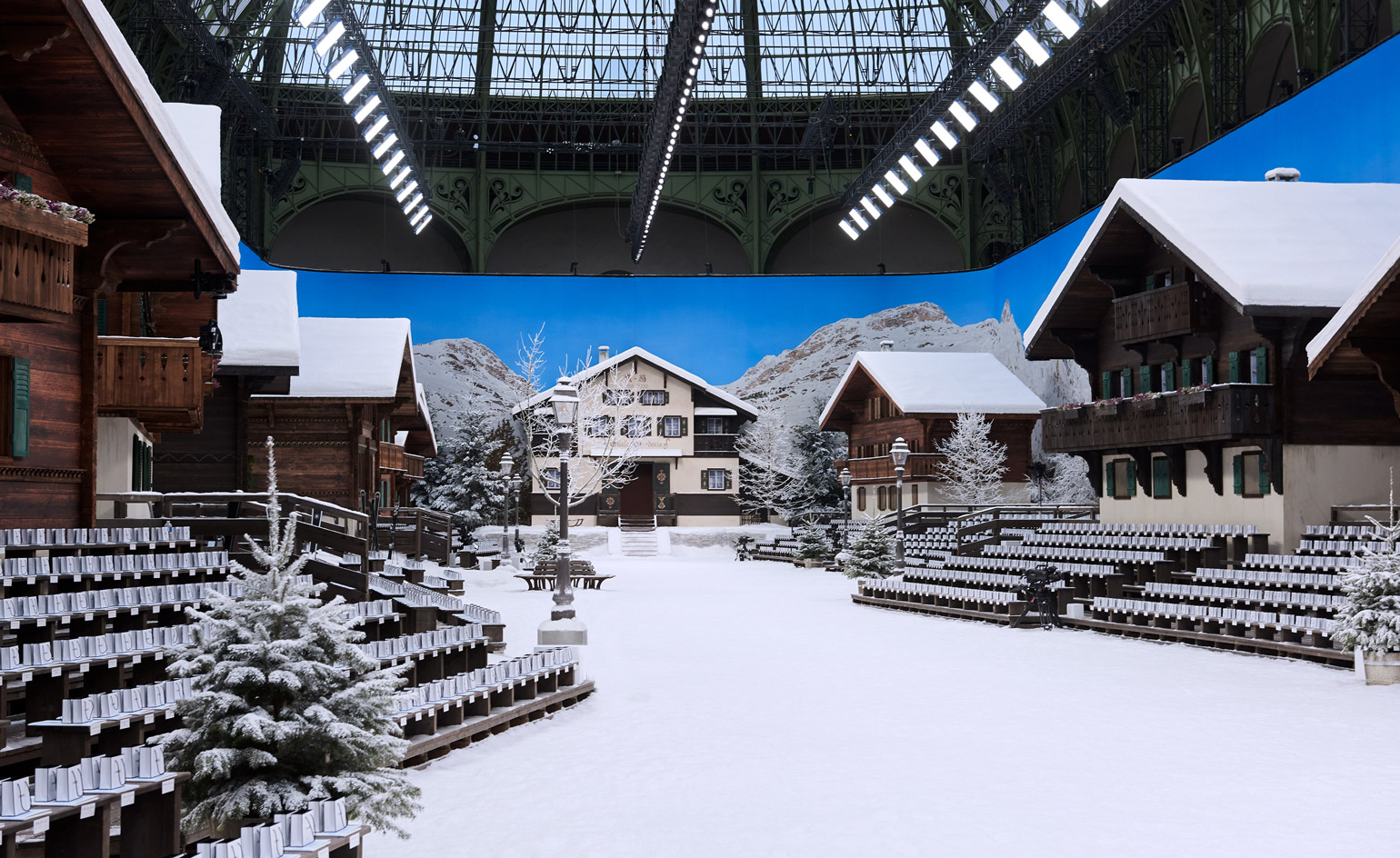
Chanel: For Karl Lagerfeld’s final collection for the maison, Chanel erected a snowglobe-like winter wonderland inside the Grand Palais in Paris. A series of wooden chalets lined the runway, against a panoramic alpine backdrop. Snow swathed the catwalk, and was sprinkled on the tops of pine trees and lampposts. The tinkle of wind chimes signalled the start of the show, and each model entered the space from the forest green doors of a ski lodge at the head of the runway.
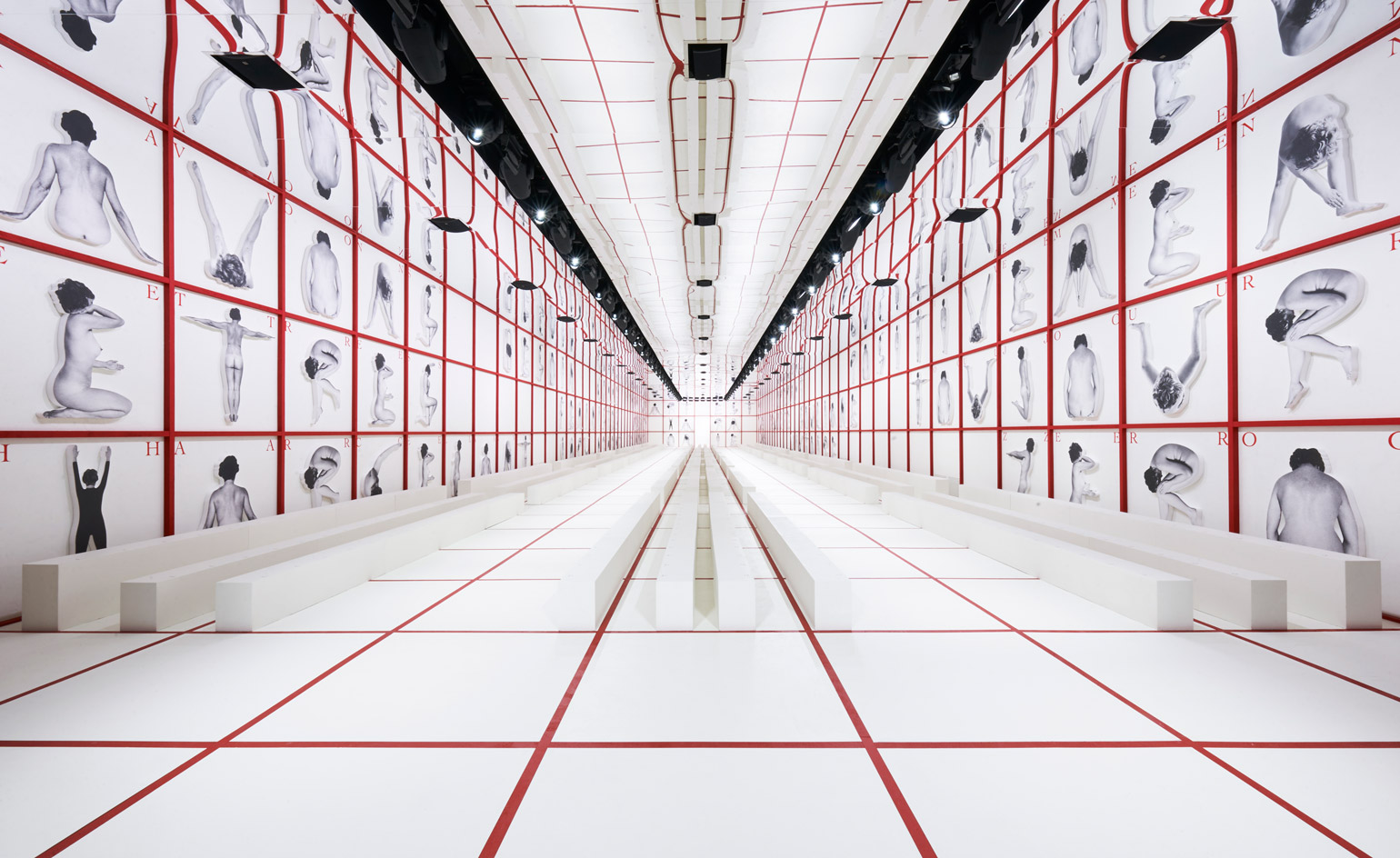
Dior: The Parisian maison’s show space came with a typographical touch. For A/W 2019, artistic director Maria Grazia Chiuri collaborated with the octogenarian Italian artist and writer Bianca Pucciarelli Menna, who works under the male pseudonym Tomaso Binga, an alter ego she adopted to highlight the privilege awarded to male artists. Binga’s works include the 1976 ‘Alfabetiere Murale’, a typographical alphabet with letters formed from nude portraits of Binga herself. For the show, these letters were tessellated across the interior of the Musée Rodin in a grid of bold black, white and red tones.
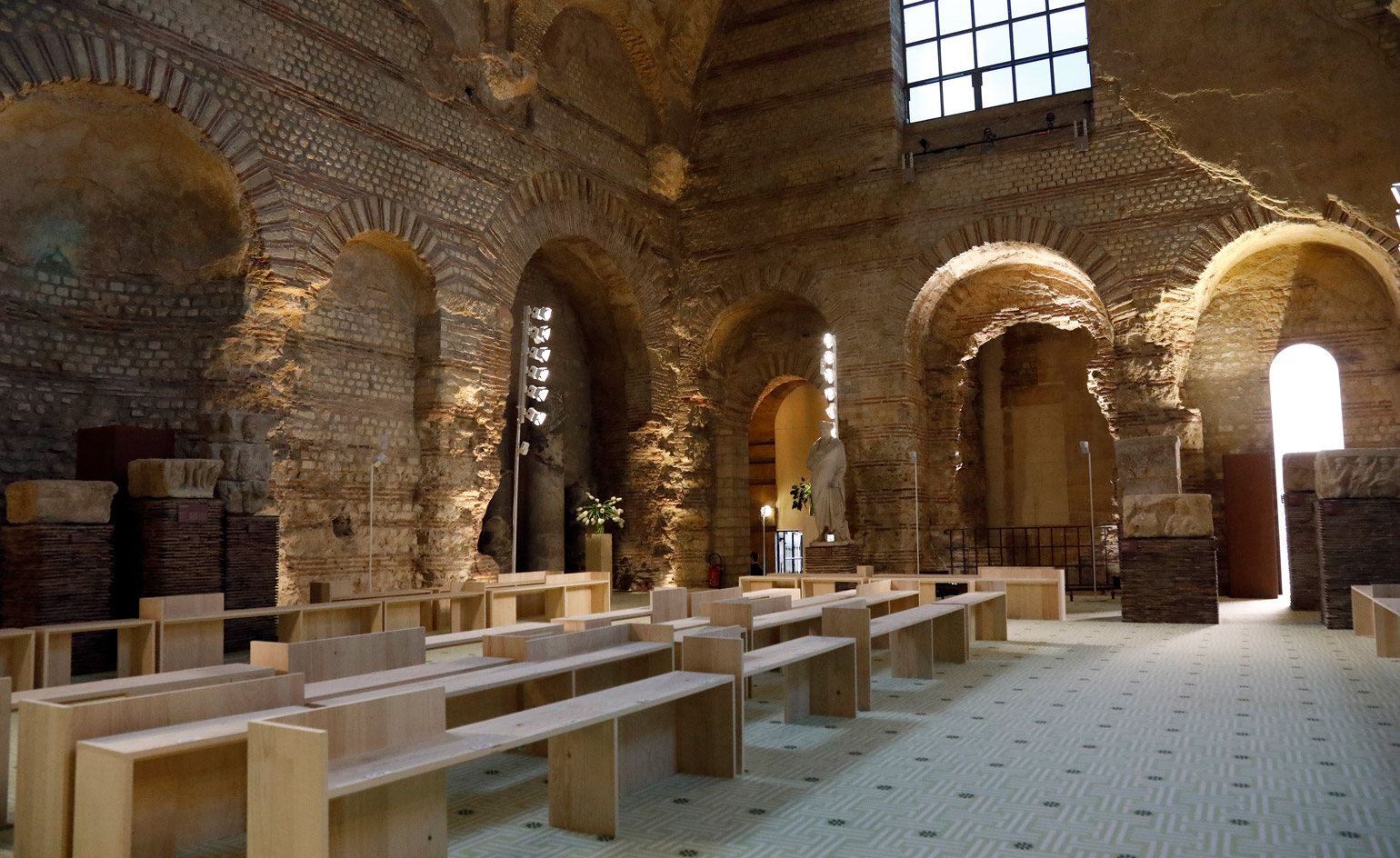
Lanvin: Bruno Sialelli chose the Musée de Cluny as the location for his debut show for the Parisian house. The museum has a Renaissance facade, and its bare-bricked permanent exhibition rooms, which were redesigned in Le Studio Adrien Gardère and Bernard Desmoulin Architecte in 2016, house one of the largest collections of medieval art in the world. These influences featured in the brand’s collection in a series of manuscript prints. Jeanne Lanvin’s office features delicate floral wallpaper, nodded to in a graphic green carpet tessellated with daisies.
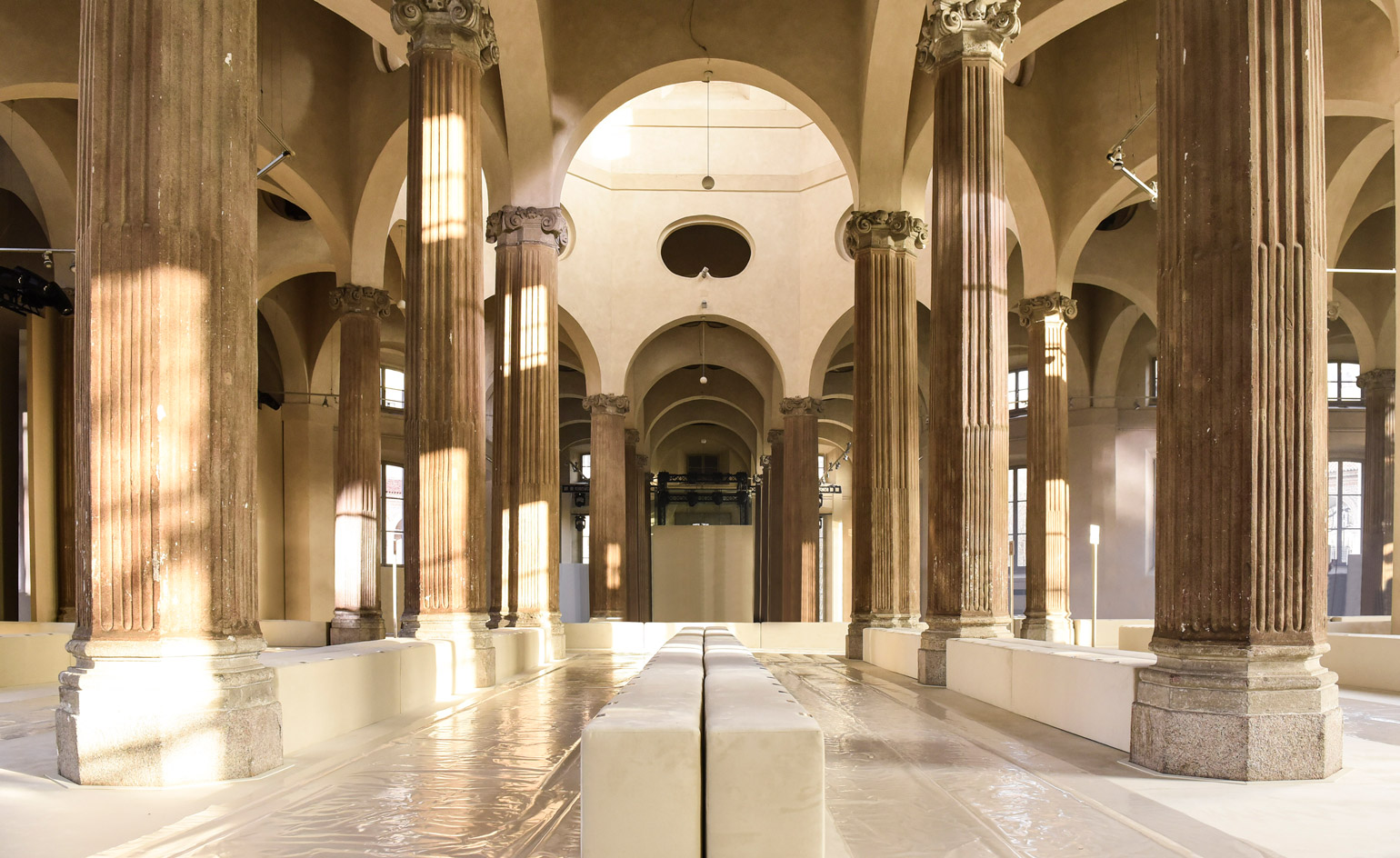
Salvatore Ferragamo: The Florentine house switched up its regular show set in Milan, holding its A/W 2019 men’s and women’s show at the Rotonda della Besana, a baroque building complex, built between 1695 and 1732. The show was held in the centre of the complex in a column-lined desecrated church. A pure ivory velvet catwalk lined the space, and natural light streamed through its windows as the show progressed.
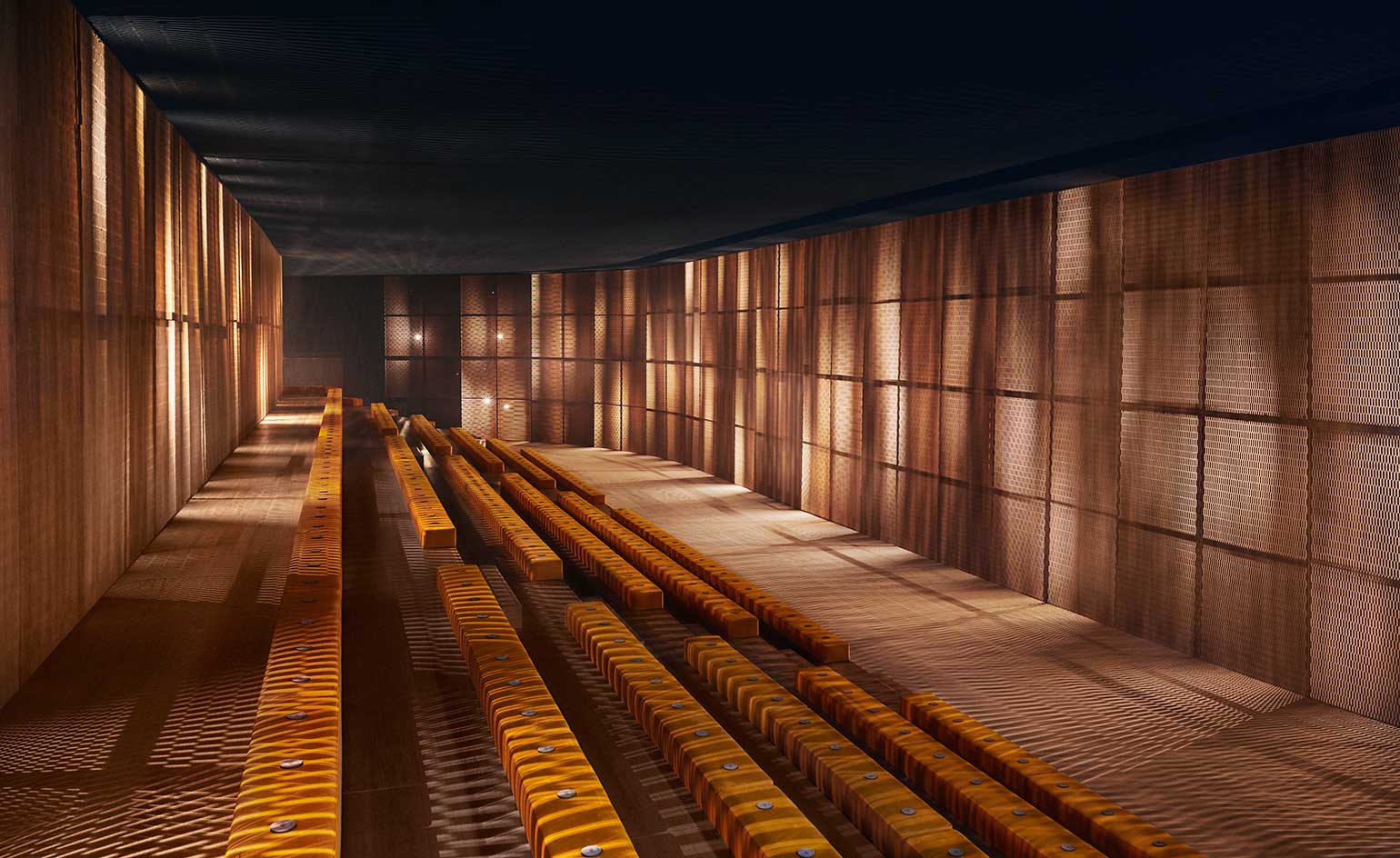
Hermès: Behemoth special events company villa Eugénie worked with the Parisian maison on a set resembling an intimate wooden auditorium, lined with orange cushion-covered seating. In a nod to Arabic architecture, the space was populated with a contemporary version of Moucharabieh trellises. Twinkling lights illuminated spaces in the structure, in time with music which was dispersed through an acoustic panel in the center of the space.
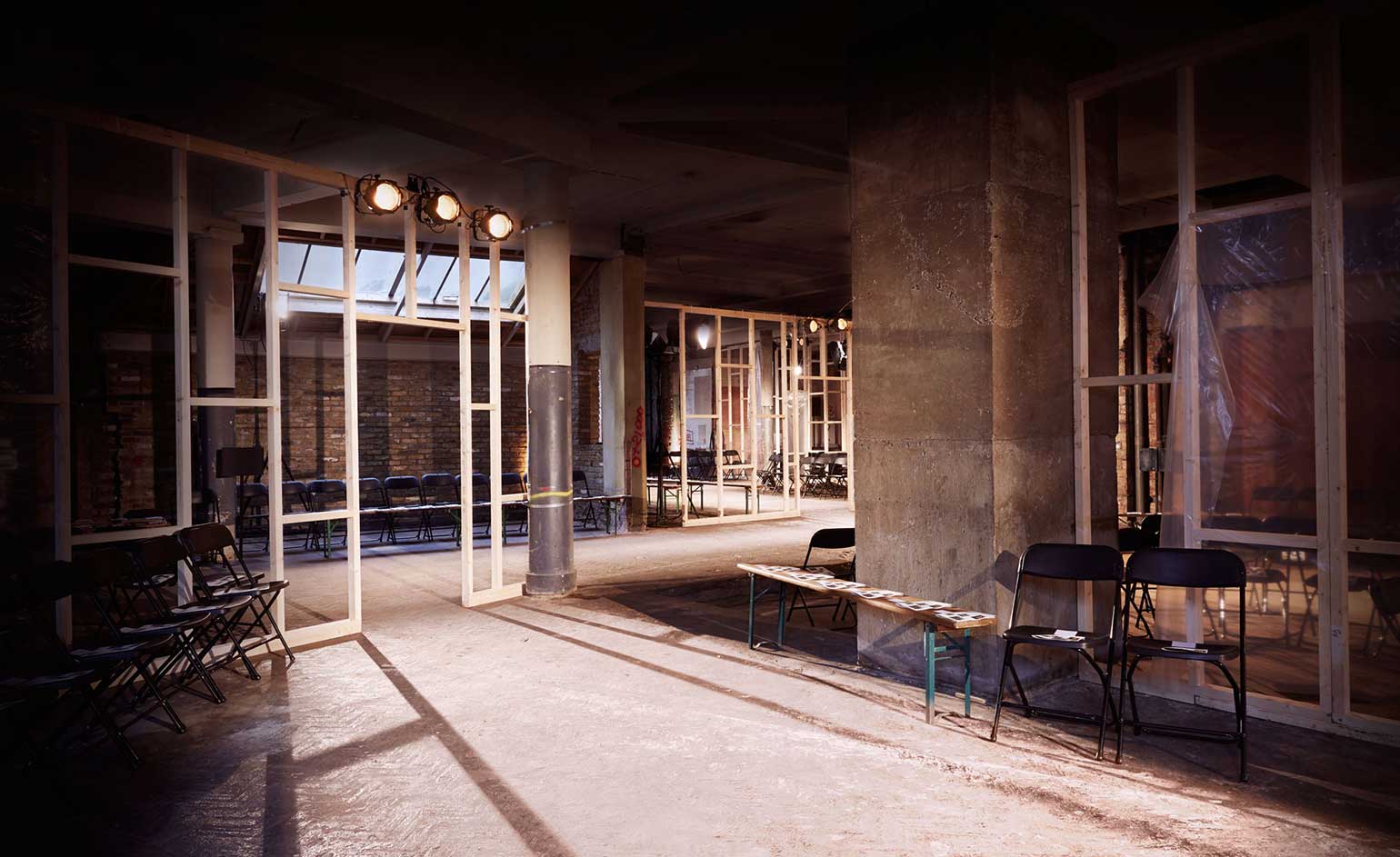
Rejina Pyo: The London-based designer was renovating her home through the design process of her A/W 2019 collection. Her runway set near London’s Covent Garden reflected this venture, and the designer worked with Studio Boum on a raw set up, populated with protective plastic sheeting and mid-construction wooden beams. ‘These visual references are an unpolished collage of real moments, places and materials, and they sit alongside my experience of building my home,’ Pyo adds.
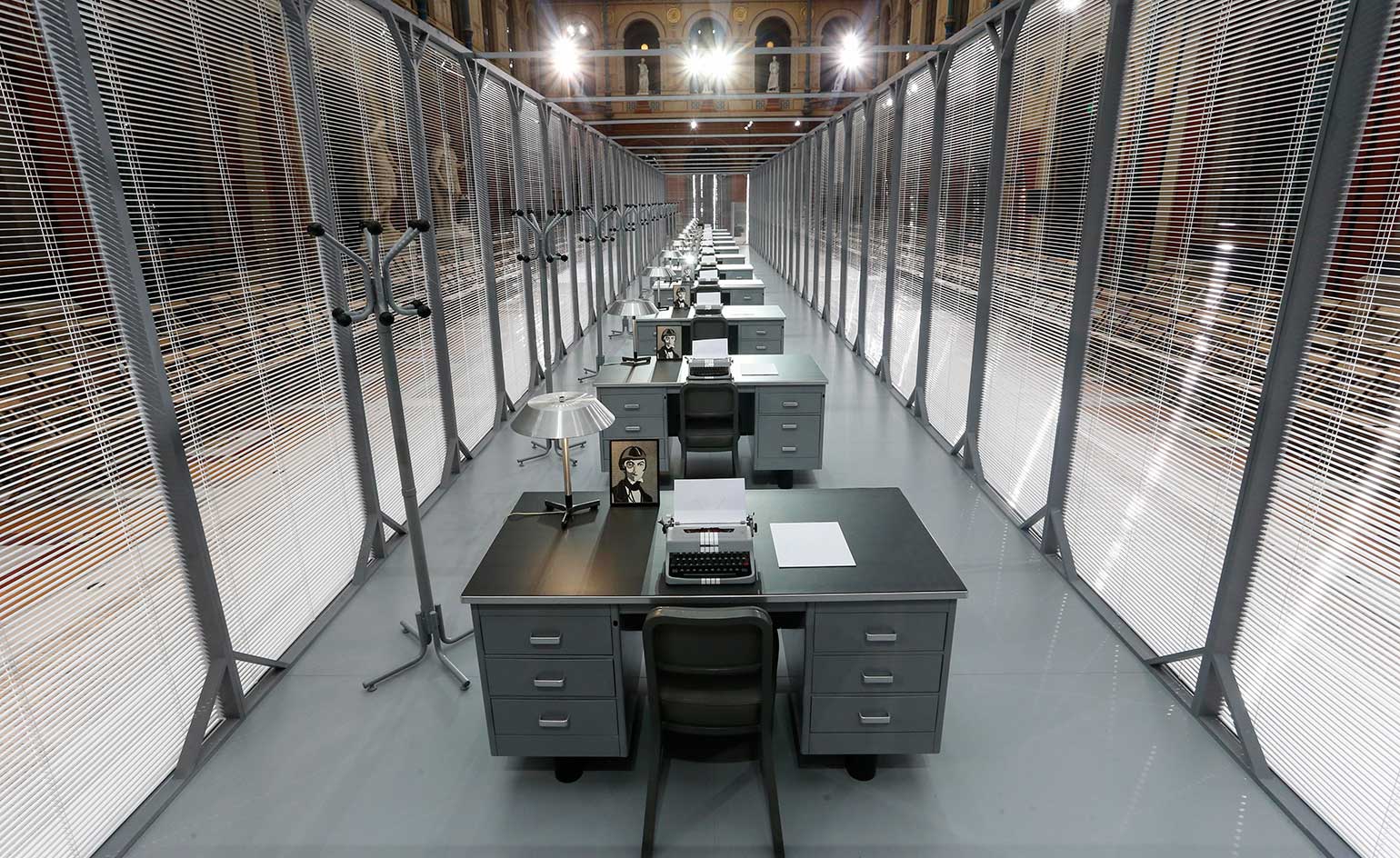
Thom Browne: Office politics played a central role in the brand’s runway set up at the Beaux Arts on Paris’ Rive Gauche, which featured desk set ups concealed behind roller blinds, complete with coat stands and Thom Browne-branded typewriters. Browne was inspired by the first show he held in Europe during Florence’s Pitti Uomo in 2009. His original show featured men working at desks in tailored suits. A decade later, he updated his nine-to-five fantasy.
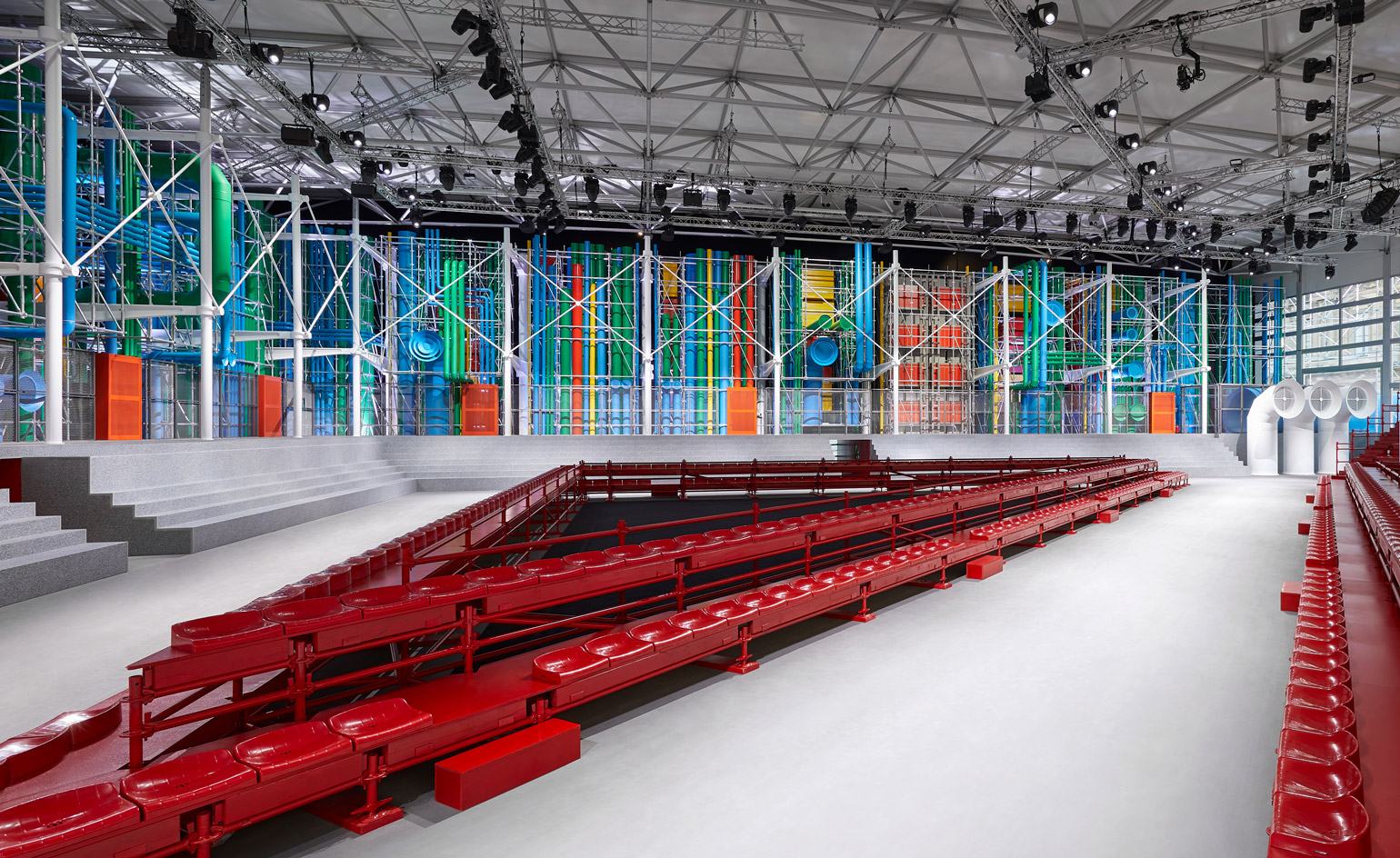
Louis Vuitton: From the Cour Marly to the Cour Lefuel, the spectacular rooms of the Louvre Museum in Paris have formed the backdrop to Nicolas Ghesquière history-spanning collections for the label. For A/W 2019, he amped up his museum obsession, erecting a breathtaking version of Renzo Piano and Richard Rogers’ Pompidou Centre at the Louvre’s Cour Carrée. The museum’s unusual inside-out design was replicated at a scale of 1/20, and the catwalk was lined with colourful pipes and industrial elements. This museum-inside-a-museum concept fused classic and contemporary constructs, something Ghesquière is famed for.
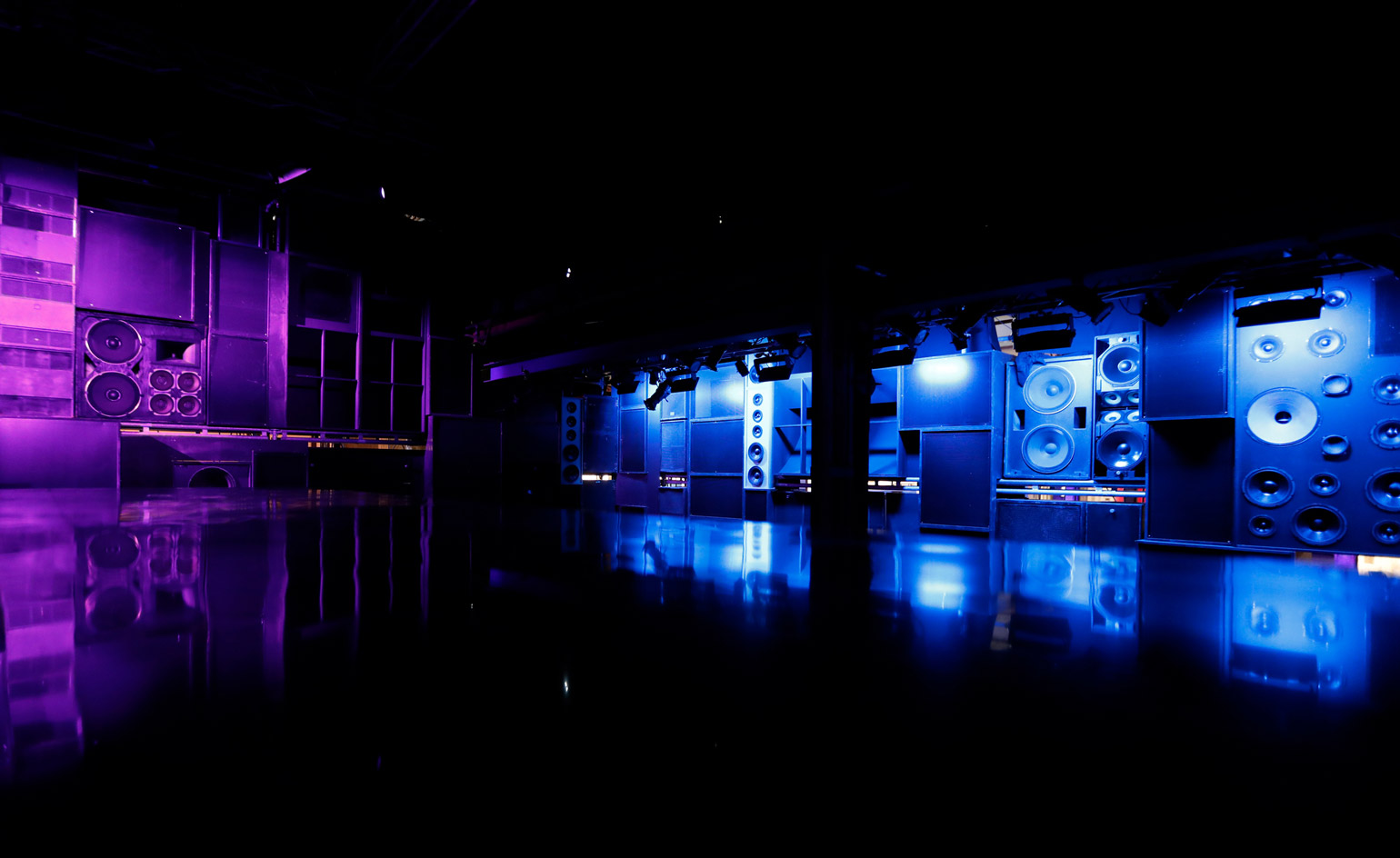
Marni: In January, Francesco Risso pumped up the volume for his A/W 2019 menswear show, with a runway set stacked with speakers. The bass was pounding for his women’s show too, as the creative director lined rooms inside a vast industrial space with all the amplifying sound equipment you’d ever need.
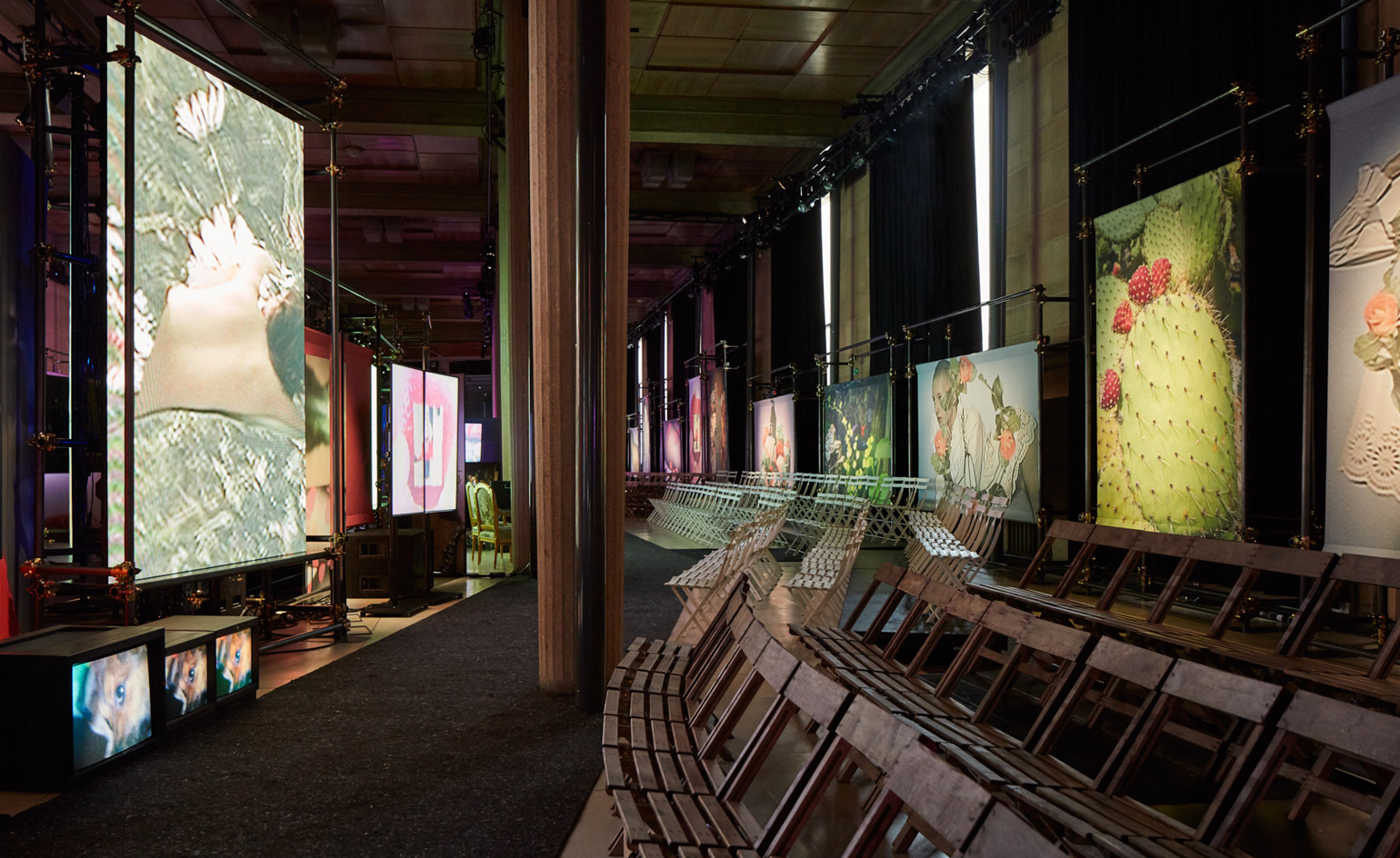
Miu Miu: For A/W 2019, Miuccia Prada and AMO teamed up with the New Zealand-born London-based filmmaker Sharna Osborne. The brand was looking to perceptions of femininity for autumn, and this theme was reflected in a curated edit of the photographer’s personal material, which was conveyed through an amalgam of different media. The set was all about sensory overload (the deluge of digital material today was a theme of the A/W 2019 shows) and the Paris space was populated with old TV sets, huge LED screens and oversized blown up prints, portraying a chaotic array of narratives.
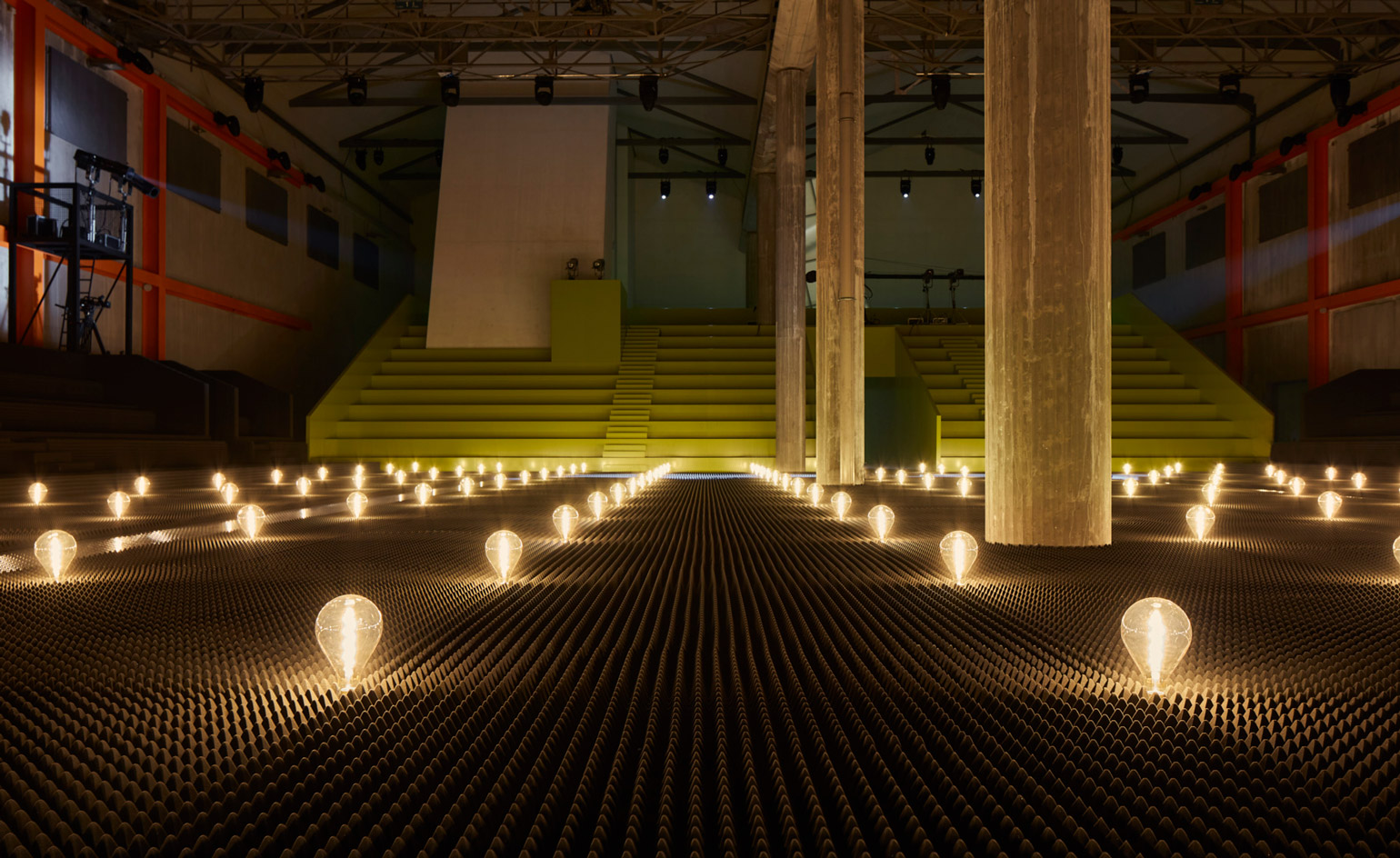
Prada: An industrial iron catwalk lined the Fondazione Prada’s performance-focused Deposito space, populated with a theatrical filed of glowing lightbulbs. The scene, created in collaboration with AMO, was a recreation of the brand’s A/W 2019 menswear show, and its set up was spooky and laboratory-like. Tiered seating lined the runway, which appeared solid and spiked but was swathed in spongy points of foam. Miuccia Prada’s own postmodern take on a haunted house.
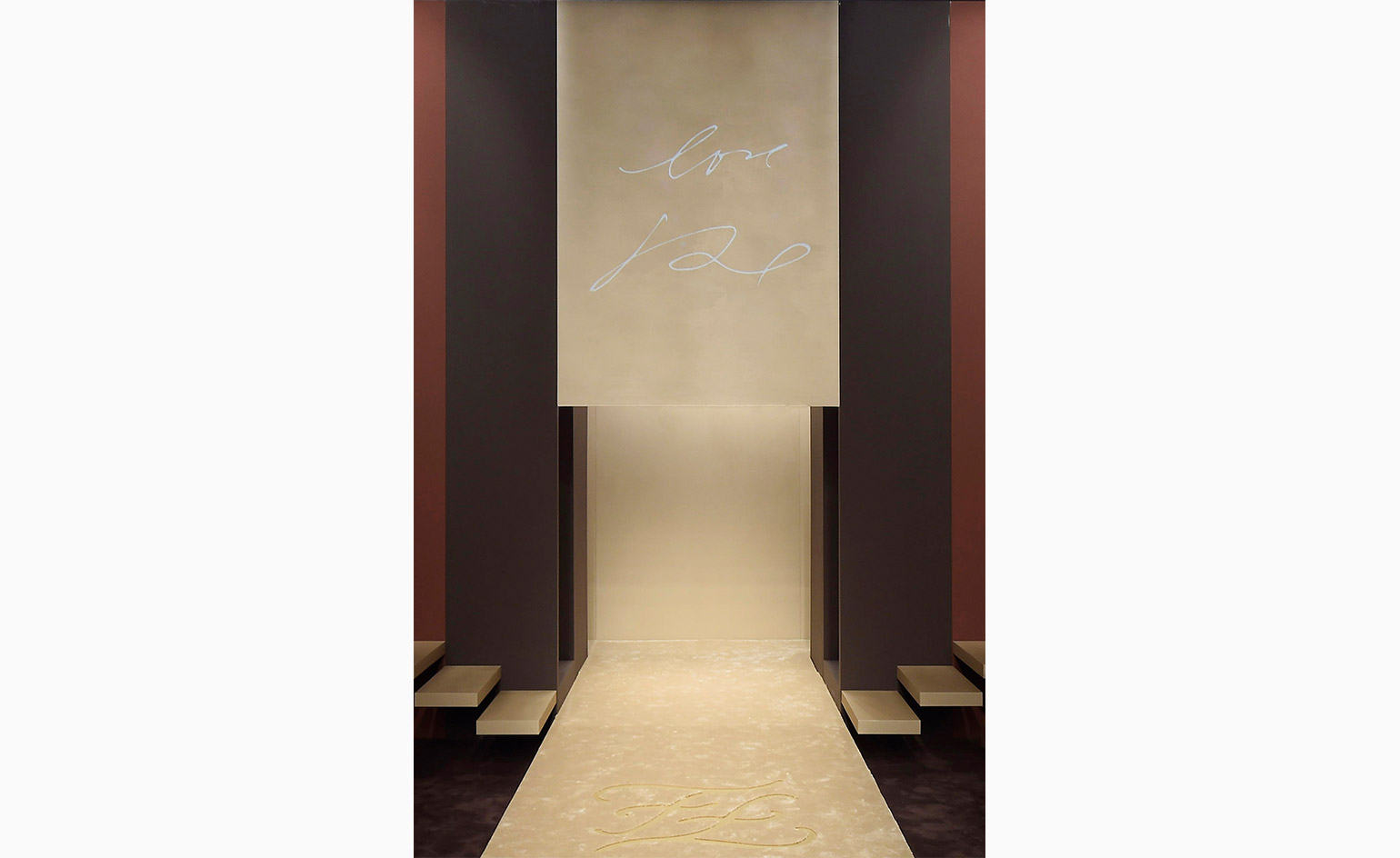
Fendi: The Roman brand’s show set was dedicated to Karl Lagerfeld, who was at the creative helm of Fendi for 54 years. The runway was decked in chocolate brown and chestnut stripes, and above the entrance to the catwalk, Lagerfeld’s handwriting scrawled the affectionate sign off, ‘Love Karl'. It was a touching tribute to the behemoth designer, who’s typological taste was a stalwart of the house. He also designed Fendi’s famous ‘FF’ logo in 1965.
Wallpaper* Newsletter
Receive our daily digest of inspiration, escapism and design stories from around the world direct to your inbox.
-
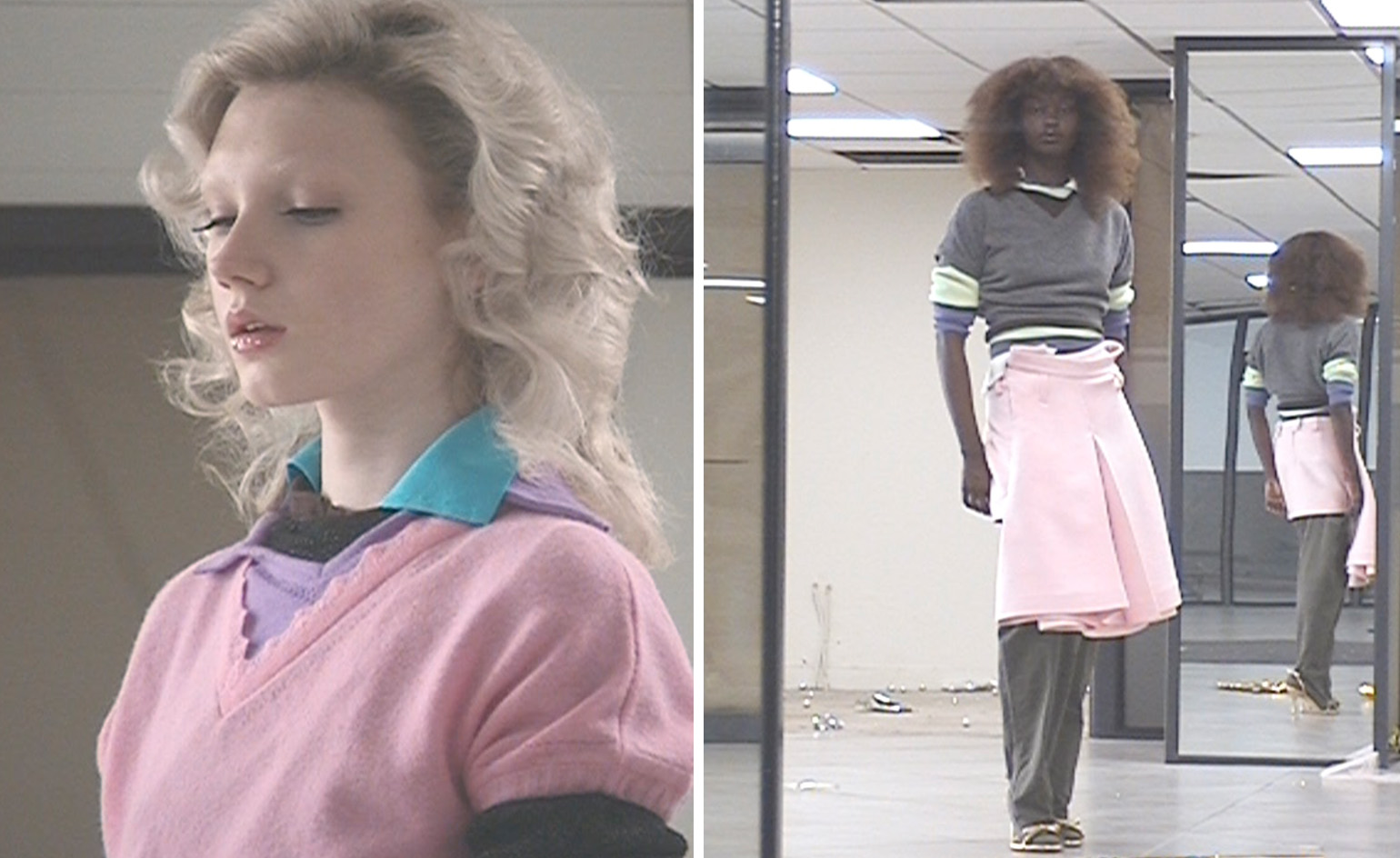 All-In is the Paris-based label making full-force fashion for main character dressing
All-In is the Paris-based label making full-force fashion for main character dressingPart of our monthly Uprising series, Wallpaper* meets Benjamin Barron and Bror August Vestbø of All-In, the LVMH Prize-nominated label which bases its collections on a riotous cast of characters – real and imagined
By Orla Brennan
-
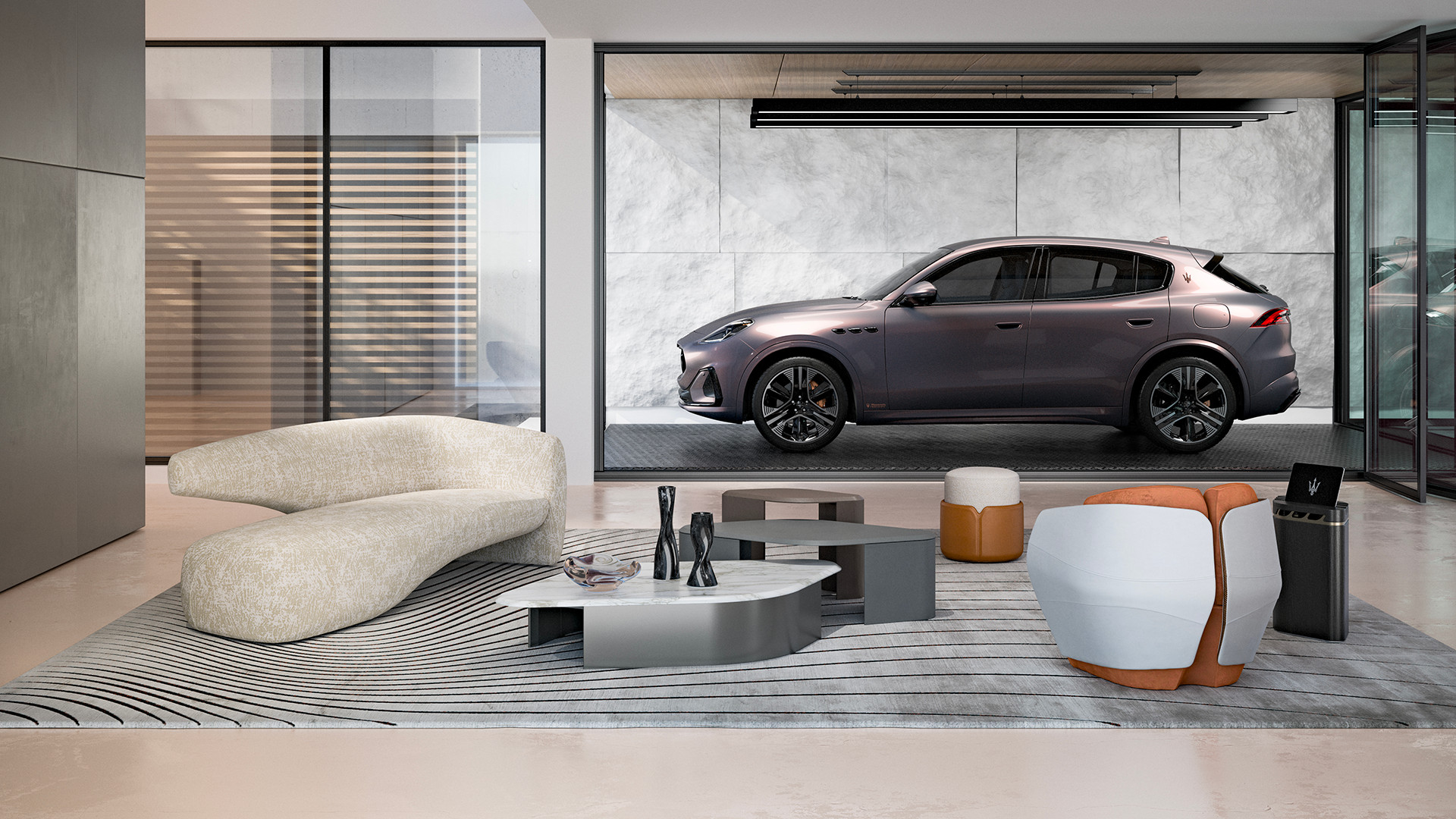 Maserati joins forces with Giorgetti for a turbo-charged relationship
Maserati joins forces with Giorgetti for a turbo-charged relationshipAnnouncing their marriage during Milan Design Week, the brands unveiled a collection, a car and a long term commitment
By Hugo Macdonald
-
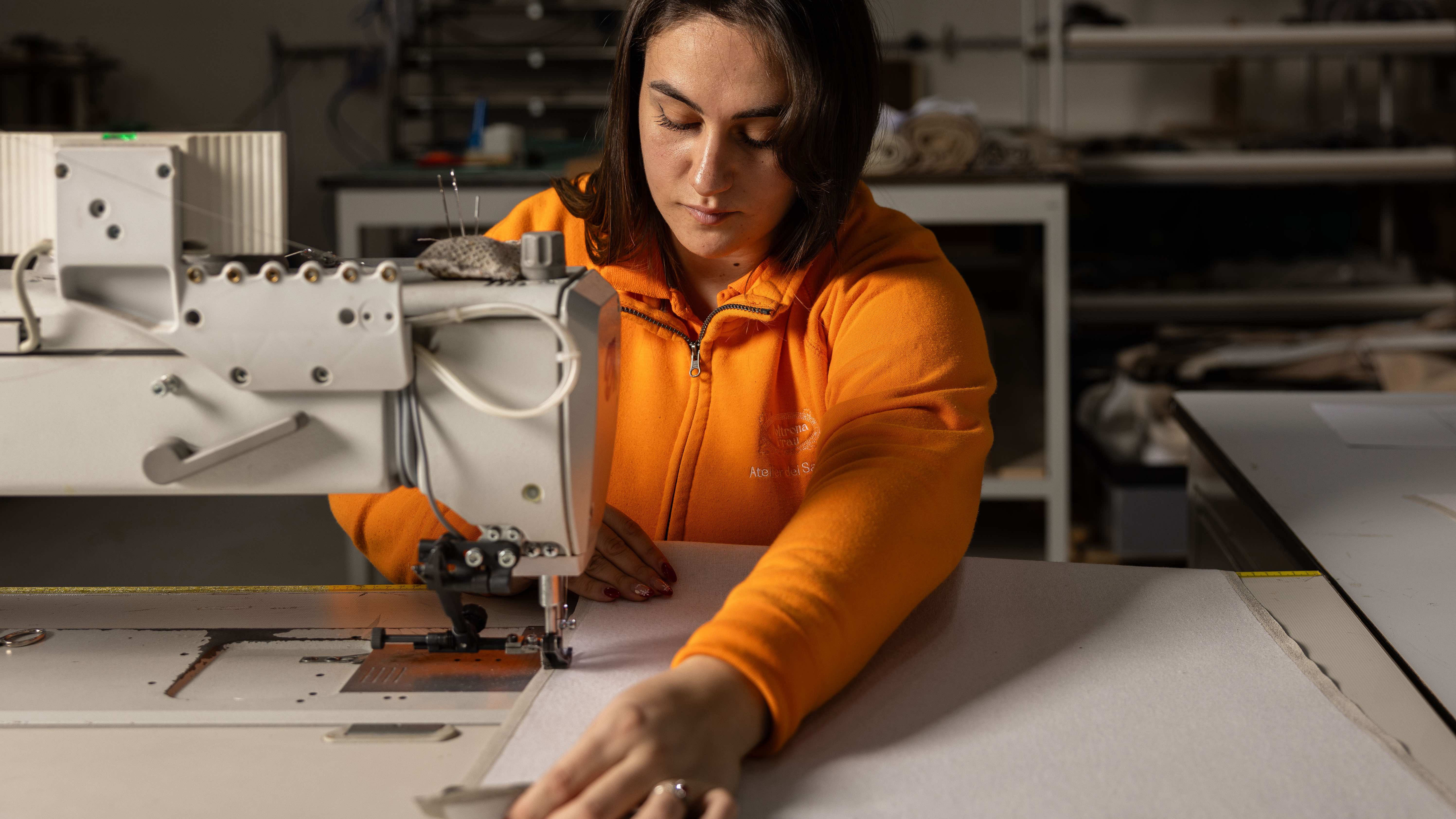 Through an innovative new training program, Poltrona Frau aims to safeguard Italian craft
Through an innovative new training program, Poltrona Frau aims to safeguard Italian craftThe heritage furniture manufacturer is training a new generation of leather artisans
By Cristina Kiran Piotti